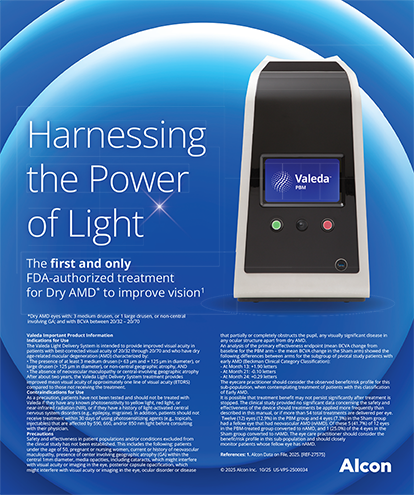How has cataract surgery changed since you started practicing?
When I began practice 28 years ago, extracapsular cataract extraction and IOLs were just being introduced. Cataract surgery was not considered to be a subspecialty, and I was probably the first ophthalmologist in India to start practicing as a “cataract specialist.” Fortunately, we have come a long way since those days.
Advances in diagnostic and surgical techniques and technologies have allowed cataract surgeons to achieve superior surgical performance and control and to optimize outcomes for our patients. I remember when operating on a brunescent or a mature cataract meant several sleepless nights for me. Today, thanks to refinements in surgical techniques, a much better control of energy delivery and fluidics, and adjuncts like ophthalmic viscosurgical devices, we can offer consistent and predictable outcomes even in challenging scenarios.
With a renewed understanding of surgically induced astigmatism came the advent of microincisional cataract surgery. Microcoaxial phacoemulsification has enabled us to deliver the same performance through smaller incisions, but we surgeons have yet to determine the ideal incisional size that will minimize surgically induced astigmatism without distorting the wound. Newer IOLs have significantly improved visual performance. In the future, I hope to offer customized cataract surgery based on individual needs and requirements. Substantial research has been done to elucidate the etiogenesis of cataract and modes to prevent it. More research, however, is needed on this topic. Research on posterior capsular opacification has tremendously benefitted our patients and ourselves. These are exciting times for cataract surgeons, and I hope for the answers to more questions in time.
You have dedicated your research to congenital cataracts in children. What questions do you still hope to answer?
I would like to uncover the cause of congenital cataracts and the genetics behind them. Answering these questions will be the final step in understanding the genesis of, and therefore possibly preventing, these cataracts. I also hope to discover if primary IOL implantation is safe and effective in infants younger than 1 year of age. I hope that an ongoing clinical trial at our center, the Aphakia Versus Pseudophakia Trial, will provide meaningful data about this matter.
Posterior capsular opacification is another enigma. If we ophthalmologists can find a way to prevent this complication without harming the eye, it will be a great help to these children. I want to do away with anterior vitrectomy while performing cataract surgery on infants and very young children.
What skills do you try to instill in the fellows you have trained at the Iladevi Cataract & IOL Center?
I am passionate about passing on skills and wisdom to my fellows and colleagues. I started a cataract surgical fellowship program in 1989, and I have trained over 130 ophthalmologists, including national and international fellows. The first lesson I instill in all of my fellows is compassion for patients. The second is an attention to details, for this skill differentiates good from excellent ophthalmologists. During cataract surgery, each step is important, so I make sure my fellows learn surgery in a step-by-step manner and are supervised at all times. I also try to instill an attitude of scientific curiosity and a desire to learn. Only by questioning our current practices and beliefs can we do better for our patients and ourselves. I therefore encourage all my fellows to participate in active clinical research.
What motivates you to participate in live demonstrations of cataract surgery throughout the world?
Doing so gives me an opportunity to show the tips, tricks, and techniques that I find useful as a surgeon. It is also a wonderful platform for discussing different perspectives with the cofaculty and the attendees. Personally, I find it thrilling to operate live!
What is your ideal vacation?
This is a difficult question to answer. Ideally, I would choose a quiet place, somewhere close to nature. For the past few years, my travel for educational purposes has increased tremendously, and these trips have become working vacations: educational activities and relaxation time are mixed in one trip. An “ideal vacation” is becoming a rarity for me.


